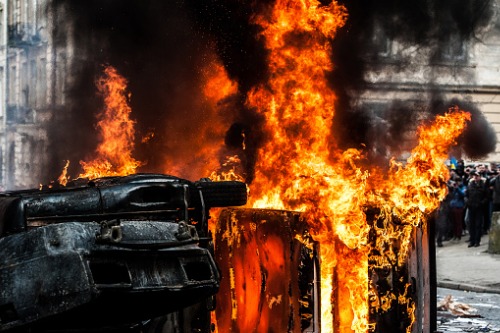

Brokerage giant Marsh has revealed some surprising findings in its 2019 Terrorism Risk Insurance Report, which looks globally at threats in the past and today.
“Ebbs and flows in terrorism are common, but the evolving and ever-present nature of this risk requires people and organisations to be continuously on guard,” the report stated.
Some of these ebbs and flows show that the number of attacks worldwide has fallen to a low not seen since 2011, but this does not mean that industries can rest on their laurels.
In Western States in particular, the types of attacks have been changing over the years, with explosives less likely to be used, unlike back in the days of the IRA. The Marsh analysis found that attacks were now more likely to occur with terrorists using weapons that are easy to obtain.
“Low-capability attacks using firearms, bladed weapons, or vehicles are likely to be favoured, entrenching a shift toward attacks that generate little property damage, but pose significant risks to people,” the report explained.
This is something that Geoff Stilwell, CEO and managing director of Beech Underwriting, has been saying for some time.
“These guys are not going to have in their possession a bomb - these days it’s create as much fear as possible,” he said. “If you look at this report and you look at where the spikes [in big attacks] are, whether it’s Venezuela, Columbia, in the Middle East, it’s where it’s easier to obtain explosives.”
The London Bridge and Borough Street market terrorist attack, which happened in 2017 in London and resulted in the deaths of eight people, was an example of such an opportunistic attack. Such attacks also generate huge losses economically and cause massive headaches for the insurance industry.
“In the wake of the 2017 London Bridge attack, extensive police cordons remained for 10 days, generating widespread business interruption losses,” Marsh’s report said. “Since there was limited physical damage, many insureds were left without cover. Businesses lost an estimated £1.4 million from the London Bridge attack, according to Pool Re.”
The report highlighted that this was why “non-damage business interruption” insurance, also known in the UK as non-damage denial of access, is one of the areas of highest demand in terrorism insurance. It means that anyone running a business can get paid for a loss of earnings due to a terrorist attack even if there was no direct physical damage to their business.
“Anybody who runs a pub, a nightclub, a hotel, should have non-damage denial of access,” Stilwell explained. “They may think it’s not worth buying but for the sake of £50 or £100, it’s a no brainer to be honest.”
In the end, Stilwell’s advice is that protection will help you in the long run.
“I think we should just continually remind people to be vigilant,” Stilwell said. “They should, for what the price is of terrorism cover is, they should buy it. That’s not being alarmist, that’s just protecting your investment.
“Because if you’ve got a house, a business of any sort you should have terrorism cover, no two ways about it. Protect your investments. And you may think that you are not a specific target, but they have found explosives down in plenty of unusual areas, like recently in Sussex.”
